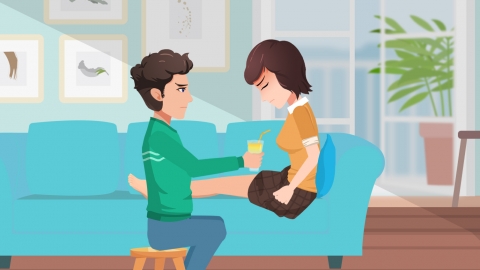Can heatstroke cause fainting?
Generally speaking, in cases of mild heatstroke, fainting usually does not occur; however, fainting may happen in cases of severe heatstroke. If discomfort symptoms appear, it is recommended to closely monitor your physical condition and seek medical treatment at a formal hospital when necessary. Detailed explanation is as follows:

During mild heatstroke, the main symptoms include dizziness, headache, thirst, excessive sweating, and weakness in the limbs, but fainting typically does not occur. This is because, during mild heatstroke, the body temporarily experiences an imbalance between heat production and dissipation. Although this may affect physical condition, the blood and oxygen supply to the brain are not severely impacted, and the nervous system can generally maintain basic normal function. Therefore, fainting usually does not occur. At this stage, as long as the person promptly leaves the high-temperature environment, replenishes fluids, and rests, the related discomfort symptoms will gradually subside.
Severe heatstroke places the body in a serious state of stress, causing a sharp rise in core body temperature and significant loss of water and electrolytes. This may lead to reduced effective circulating blood volume and decreased blood pressure. When blood pressure drops too low, cerebral blood perfusion becomes insufficient, causing cerebral ischemia and hypoxia, which can result in sudden fainting. Additionally, severe heatstroke may impair the normal regulatory function of the nervous system, leading to disturbances in consciousness, which is another reason for fainting. It may also be accompanied by severe symptoms such as high fever, absence of sweating, and coma.
If symptoms indicating an impending faint, such as dizziness or blacking out, appear after heatstroke, the person should immediately stop any activity and sit or lie down in a cool place to rest, to prevent injury from sudden falls. If fainting has already occurred, bystanders should promptly move the patient to a cool, well-ventilated area, loosen their clothing, apply wet towels to their body for cooling, and call emergency services as soon as possible. Additionally, during hot weather, prolonged outdoor activities should be avoided as much as possible, and drinking water should be carried to prevent heatstroke.









